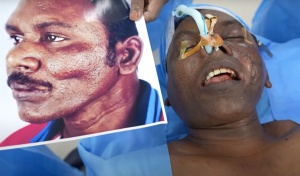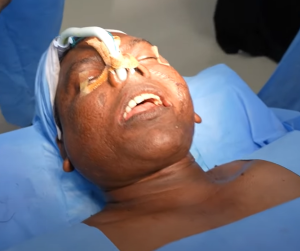The journey through cancer treatment is often marked by significant challenges and milestones, each carrying its own weight of emotions and uncertainties. For individuals who undergo surgery for oral cancer, one such milestone is the moment when they can open their mouths fully for the first time post-surgery. This momentous occasion signifies not only physical healing but also the beginning of a new chapter in their lives—a chapter filled with hope, resilience, and the promise of a brighter future.
Complete surgery for oral cancer, which may involve the removal of tumors, affected tissues, and sometimes even parts of the jaw or tongue, can profoundly impact a person’s ability to perform basic functions such as eating, speaking, and swallowing. In the immediate aftermath of surgery, patients may experience restricted mouth opening, known as trismus, due to tissue inflammation, scarring, or nerve damage.

The journey towards regaining full mouth opening is often a gradual and arduous process, requiring patience, perseverance, and the guidance of a multidisciplinary healthcare team. Post-surgery, patients typically undergo a comprehensive rehabilitation program tailored to their individual needs, which may include:
- Physical therapy: Gentle exercises and stretching techniques aimed at improving jaw mobility and reducing muscle stiffness.
- Oral hygiene measures: Proper oral care practices to maintain oral health and prevent complications such as infections or dental decay.
- Speech therapy: Techniques to enhance articulation, swallowing function, and overall oral motor skills.
- Nutritional support: Dietary counseling and nutritional supplementation to ensure adequate intake of nutrients during the recovery period.
- Psychological support: Counseling and support services to address emotional concerns, anxiety, and adjustment to life after cancer treatment.
As patients progress through their rehabilitation journey, each small improvement in mouth opening represents a significant victory—a testament to their resilience and determination to reclaim their quality of life. The ability to open their mouths fully enables them to enjoy simple pleasures such as eating their favorite foods, engaging in conversations with loved ones, and expressing themselves freely without limitations.
Follow-up care plays a crucial role in ensuring the long-term success of oral cancer treatment and rehabilitation. Regular monitoring by oncologists, oral surgeons, and other healthcare providers allows for early detection of any recurrence or complications and ensures timely interventions as needed. Additionally, ongoing support from support groups, survivor networks, and healthcare professionals helps patients navigate the challenges of survivorship and find strength in community.
In conclusion, the moment when individuals open their mouths fully for the first time after complete surgery for oral cancer is a profound symbol of triumph over adversity and the resilience of the human spirit. Through comprehensive rehabilitation, ongoing support, and unwavering determination, survivors of oral cancer can embrace a future filled with renewed hope, vitality, and the promise of brighter days ahead.

